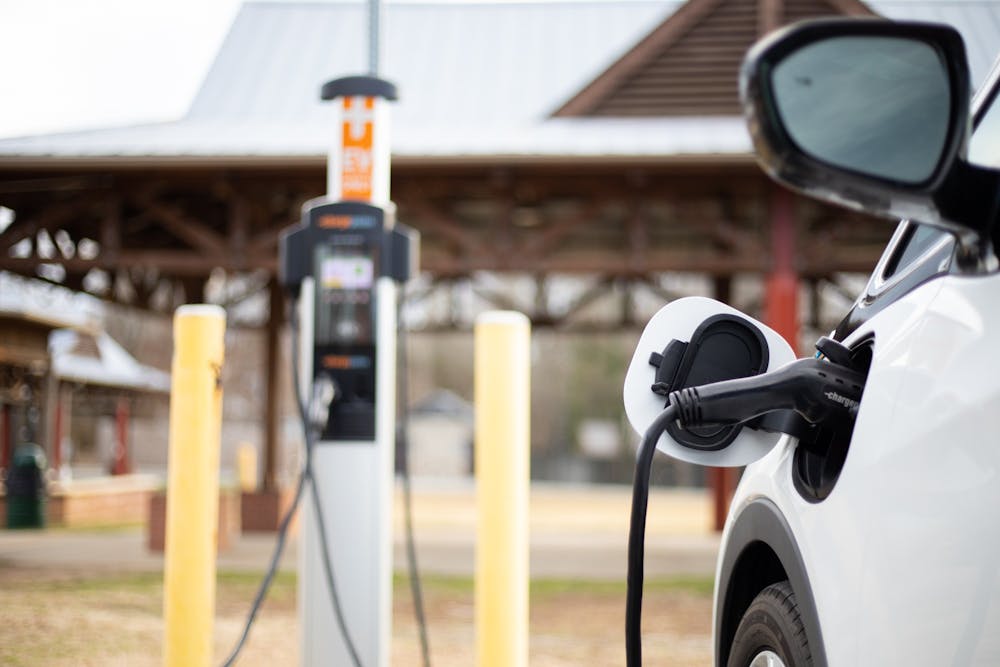With gas prices continuing to increase, Chapel Hill residents may find themselves envious of the rogue Tesla they spot on Martin Luther King Jr. Boulevard. After all, those of us without electric vehicles have been paying a pretty penny to fill up our gas tanks.
Despite what many may think, electric cars are no longer an unattainable item or some futuristic idea.
Take Chatham County, for instance. Vietnamese manufacturer VinFast selected the county as the site for its newest electric vehicle facility. This will be North Carolina's first car manufacturing plant, as well as the largest economic development in the state's history, according to a press release from Gov. Roy Cooper.
Unsurprisingly, many are wary of the transition from gas to electric. Some anticipate fewer job opportunities within the fossil fuel industry or are concerned about the sustainability of producing electric car batteries.
But the work being done in our communities, including the VinFast electric vehicle facility in Chatham County, could also serve to assuage concerns.
VinFast’s new factory is expected to create an astounding 7,500 new jobs, with the likelihood of new jobs at factories around the nation. There could potentially be 150,000 jobs created within the industry if electric vehicles amount to 50 percent of U.S. auto sales by 2030, according to an Economic Policy Institute report.
Based on these numbers, it's clear the transition to electric vehicles is inevitable and necessary. Federal and state governments should be making commitments to help make that transition faster and easier.
North Carolina should further this effort by installing more public electric charging stations in order to allow electricity to become available for those investing in electric vehicles. It's not enough for VinFast to simply be present in the community: The general population must be empowered with the tools to buy and own electric vehicles.
While it is true that electric cars outscore the average gasoline vehicle during the production process, due to the lithium-ion batteries requiring more energy and materials to make, they make up for their higher manufacturing emissions within 18 months of driving — at most. They continue to outperform gasoline cars until they are no longer usable.



